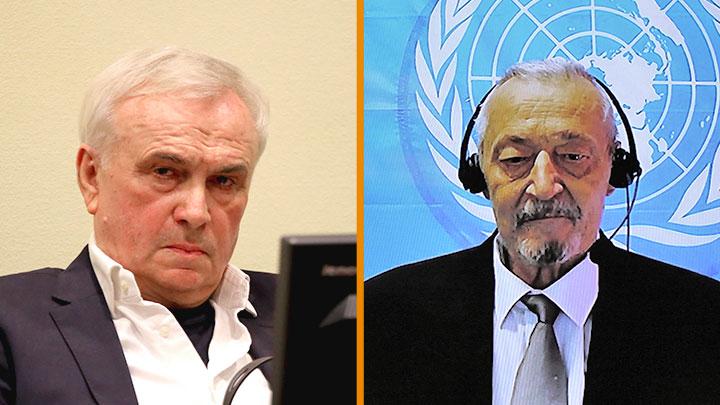The Appeals Chamber dismisses Stanišić’s and Simatović’s appeals, reverses acquittals for joint criminal enterprise liability, and increases sentences to 15 years’ imprisonment

The Appeals Chamber of the Mechanism, composed of Judge Graciela Gatti Santana (Presiding), Judge Lee G. Muthoga, Judge Aminatta Lois Runeni N'gum, Judge Yusuf Aksar, and Judge Claudia Hoefer, delivered today its judgement on the appeals filed by Mr. Jovica Stanišić, Mr. Franko Simatović, and the Office of the Prosecutor (“Prosecution”) against the judgement in the case of Prosecutor v. Jovica Stanišić and Franko Simatović, pronounced on 30 June 2021 and filed in writing on 6 August 2021 by the Trial Chamber of the Mechanism.
The Appeals Chamber dismissed Mr. Stanišić’s and Mr. Simatović’s appeals against their convictions for aiding and abetting murder as a violation of the laws or customs of war as well as murder, deportation, inhumane acts (forcible transfer), and persecution as crimes against humanity committed in connection with and following the April 1992 takeover of Bosanski Šamac in Bosnia and Herzegovina. Mr. Stanišić’s and Mr. Simatović’s criminal responsibility was based on findings that they organized the training of and then deployed Serb forces who participated in the takeover and the crimes. The Appeals Chamber also dismissed Mr. Stanišić’s and Mr. Simatović’s appeals against their respective sentences of 12 years of imprisonment.
The Appeals Chamber granted part of the Prosecution’s appeal, finding that the Trial Chamber erred in not convicting Mr. Stanišić and Mr. Simatović under the mode of joint criminal enterprise liability. The Trial Chamber had concluded that a joint criminal enterprise existed and that it had a common criminal purpose to forcibly and permanently remove the majority of non-Serbs from large areas of Croatia and Bosnia and Herzegovina, through the commission of murder, deportation, inhumane acts (forcible transfer), and persecution as charged in their indictment. The Trial Chamber had also found that Mr. Stanišić and Mr. Simatović had contributed to the common criminal purpose in connection with the crimes in Bosanski Šamac, but it acquitted them of joint criminal enterprise liability on the basis that it was not proven that either shared the intent to further the common criminal purpose.
The Appeals Chamber determined that the Trial Chamber erred in assessing Mr. Stanišić’s and Mr. Simatović’s other contributions to the common criminal purpose. The Appeals Chamber also found that they shared the intent to further the common criminal purpose. Consequently, it held Mr. Stanišić and Mr. Simatović liable as members of a joint criminal enterprise for crimes committed by various Serb forces in Bosnia and Herzegovina in 1992 in Bijeljina, Zvornik, Bosanski Šamac, Doboj, and Sanski Most and for crimes committed in 1995 in Trnovo and Sanski Most. It also found them responsible for a murder committed in Daljska Planina, Croatia in June 1992. The Appeals Chamber increased Mr. Stanišić’s and Mr. Simatović’s sentences to 15 years of imprisonment. It dismissed the remainder of the Prosecution’s appeal.
The Presiding Judge noted that the pronouncement of this appeal judgement marked a milestone in the Mechanism’s mandate to continue the material, temporal, and personal jurisdiction of the International Criminal Tribunal for the former Yugoslavia (“ICTY”), which closed in 2017. This is the last appeal judgment involving core crimes from cases originating before the ICTY.